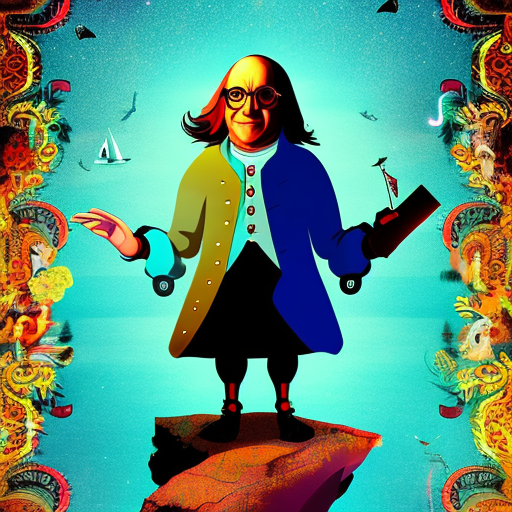One-line summary:
The Autobiography of Benjamin Franklin is a captivating account of the life and achievements of one of America’s founding fathers, showcasing his relentless pursuit of self-improvement and his invaluable contributions to society.
Early Life and Education
Benjamin Franklin was born in Boston in 1706, the fifteenth child of a poor candle maker. Despite limited formal education, Franklin’s thirst for knowledge led him to become a voracious reader and a self-taught polymath. He apprenticed as a printer and honed his writing skills, eventually establishing his own successful printing business.
Quest for Virtue and Self-Improvement
Driven by a desire to live a virtuous life, Franklin developed a set of thirteen moral virtues, including temperance, frugality, and humility. He meticulously tracked his adherence to these virtues, aiming for moral perfection. Franklin’s commitment to self-improvement extended beyond his personal character; he also sought to improve society through his numerous inventions, scientific experiments, and public service.
Contributions to Science, Invention, and Public Service
Franklin’s scientific experiments with electricity, including his famous kite experiment, revolutionized the understanding of electricity and led to the invention of the lightning rod. He also made significant contributions to the fields of meteorology, oceanography, and medicine. Franklin’s inventions, such as the bifocals and the Franklin stove, improved the quality of life for many.
In addition to his scientific pursuits, Franklin was deeply involved in public service. He played a pivotal role in the establishment of public institutions, including the first public library, fire department, and university in Pennsylvania. As a diplomat, Franklin represented the American colonies in Europe, negotiating crucial alliances and securing support for the American Revolution.
Key Takeaways:
- Franklin’s relentless pursuit of self-improvement and his commitment to living a virtuous life serve as an inspiration for personal growth and development.
- His scientific experiments and inventions demonstrate the power of curiosity, innovation, and practical problem-solving.
- Franklin’s dedication to public service highlights the importance of civic engagement and the impact individuals can have on their communities and society as a whole.
“An investment in knowledge pays the best interest.” – Benjamin Franklin
Legacy and Influence
Benjamin Franklin’s impact on American society and culture cannot be overstated. His writings, including his autobiography, continue to inspire readers with their practical wisdom and timeless advice. Franklin’s emphasis on education and self-improvement laid the foundation for the American dream, where anyone, regardless of their background, could achieve success through hard work and determination.
Franklin’s contributions to science and invention paved the way for future advancements and innovations. His diplomatic efforts during the American Revolution helped secure independence for the United States and established the country’s reputation on the world stage.
In conclusion, The Autobiography of Benjamin Franklin offers a fascinating glimpse into the life of a remarkable individual who embodied the spirit of the American dream. Franklin’s relentless pursuit of self-improvement, his scientific curiosity, and his dedication to public service serve as enduring lessons for generations to come.












